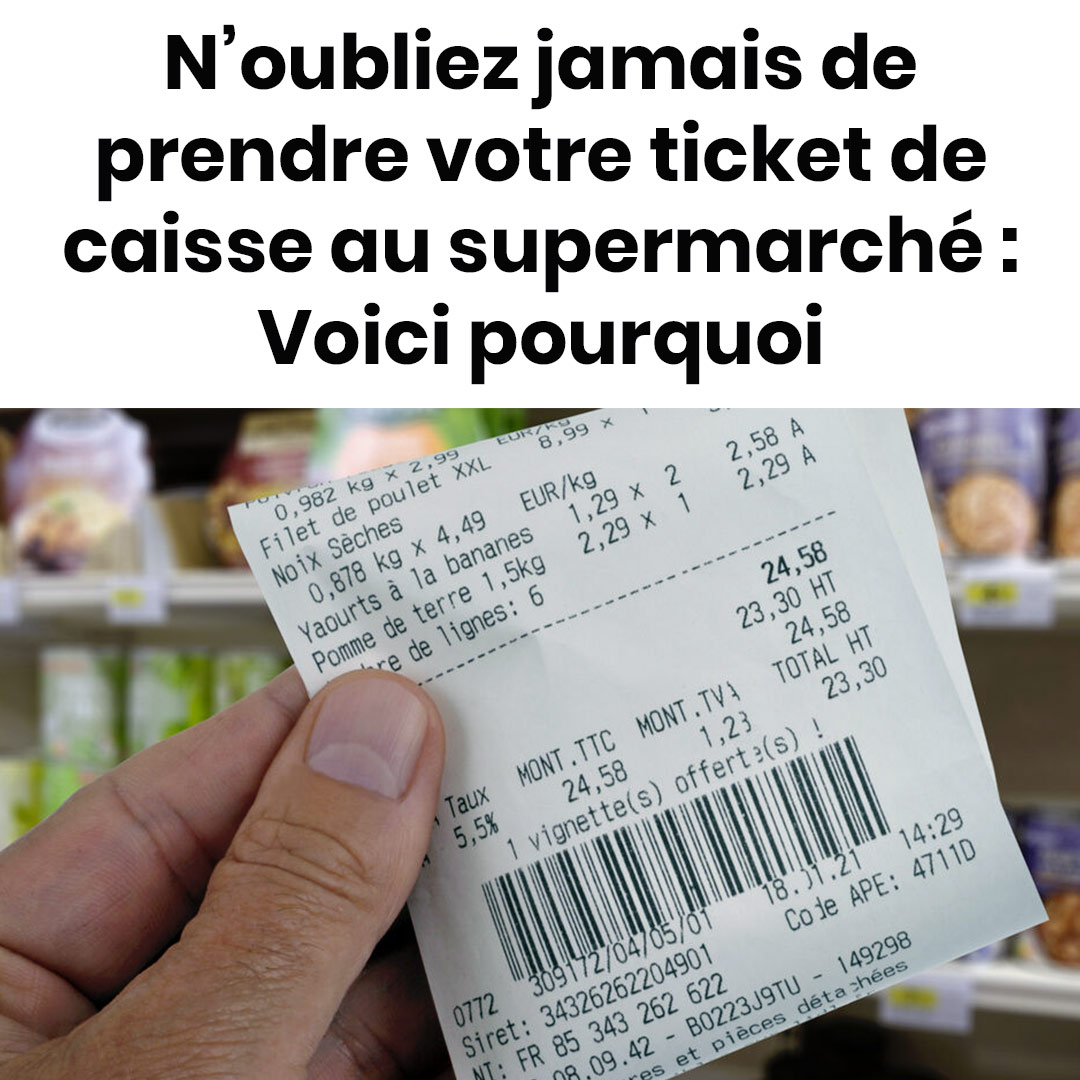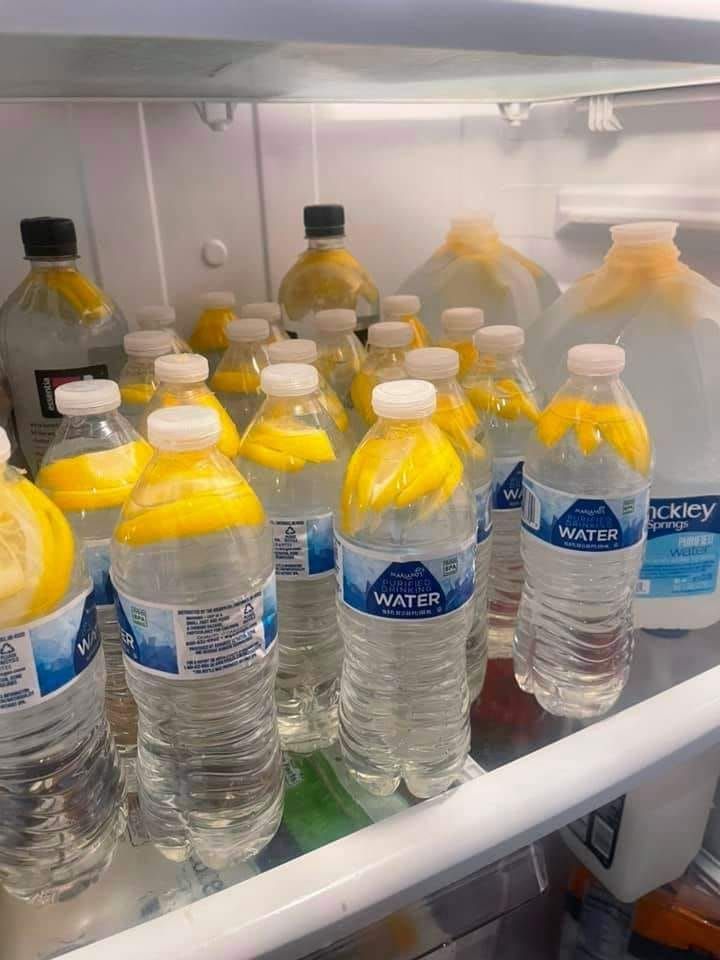Imagine this: you leave the supermarket, arms full of bags. At the checkout, you’re handed your receipt, but out of habit, you either leave it on the counter or throw it away right away. After all, what’s the point? However, that small piece of paper could save you from billing errors, protect your rights, and even help you save money. Here’s why you should always take and keep your receipt after your shopping!
Why Keeping Your Receipt Is Beneficial
1. An Indispensable Proof of Purchase
The receipt is the only official proof that you have indeed bought a product on a specific date at a specific price. This can come in handy in several situations:
- Return or Exchange: If you’ve bought a defective item, such as a malfunctioning coffee maker or a piece of clothing with a defect, you cannot exchange it or get a refund without the receipt. If you need to return an item due to the wrong size or model, most stores will require proof of purchase.
- In Case of a Dispute: If the price on the shelf differs from what you paid or if a store refuses a refund, the receipt is your best defense. Without it, you may not be able to prove your claim.
The receipt serves as your official record, protecting you against errors that could otherwise go unnoticed or cause inconvenience.
2. Verify Billing Errors
Did you know that many pricing errors can sneak into your receipt? Promotions not applied, products scanned twice—these mistakes can go unnoticed if you don’t double-check your receipt.
Common Errors to Watch Out For:
- Incorrect Price: A promotion not taken into account? Or perhaps a typing error during scanning?
- Double Scan: An item charged twice by mistake.
- Forgotten Discount: Some loyalty cards or promotions don’t always get applied correctly at checkout.
Tip: Always check your receipt before leaving the store. Any error pointed out on the spot will be corrected immediately.
This simple habit helps you avoid paying more than you should, ensuring that any discrepancies are caught early on.
3. A Tool for Better Managing Your Budget
If you’re looking to better manage your spending, the receipt is a valuable ally.
- Tracking Expenses: The receipt helps you track how much you spend on different categories—groceries, hygiene products, leisure, etc. By categorizing your purchases, you can gain insight into where your money is going.
- Analyzing Your Spending Habits: Understanding where you spend the most can help you optimize your budget and make informed decisions about future purchases.
- Planning Your Budget: By comparing your receipts over several months, you can anticipate your upcoming needs and identify recurring products, avoiding unnecessary impulse buys. This foresight will help you plan your shopping more efficiently.
Tracking your purchases can even help you stick to a monthly budget, reducing overspending and enabling you to make more intentional choices about what to buy.
4. Tax Deductions and Reimbursements
If you’re self-employed or incur work-related expenses, the receipt is essential for claiming deductions or getting reimbursements.
- Professional Use: Certain purchases, like office supplies or business meals, may be eligible for tax deductions. Having a receipt ensures you can report these expenses accurately.
- Justification for Employers: If you need to be reimbursed for professional purchases, you can only do so with a receipt. Without it, you won’t be able to claim back any money.
In addition to helping with taxes, receipts can also serve as proof for reimbursements in various work scenarios.
5. Food Traceability and Product Recalls
What happens if a health scare emerges and a product is recalled by its manufacturer? How do you know if the product you bought is affected? Without the receipt, it’s nearly impossible to check.
Why It’s Important:
- Food Safety: A receipt allows you to confirm whether a product you bought is subject to a recall due to contamination or defect.
- Requesting a Refund: Many stores require a receipt to refund or exchange a defective or dangerous product, especially if it’s been recalled.
Having a receipt ensures that you can quickly act if there’s a problem with a product you purchased, especially when safety is concerned.
6. Take Advantage of Loyalty Programs
Many supermarkets offer discounts, vouchers, or loyalty points to customers. The receipt is your key to accessing these perks.
- Check Your Points: Some receipts show how many points you’ve accumulated with your loyalty card, ensuring you’re getting the benefits you deserve.
- Coupons and Discounts: Some receipts contain special discount vouchers that can be used for future purchases. You might even find exclusive promotions that you can only redeem by keeping the receipt.
Don’t discard your receipt too quickly—it could be a ticket to savings or special offers.
Protect Against Fraud and Disputes
In rare cases, errors can happen at checkout, or there may even be unjust accusations.
Protect Yourself from Errors and Disputes:
- Proof of Payment: If you’re stopped for a check at the exit, your receipt serves as proof that you’ve paid for your items.
- Against Abuse: If a store refuses a refund or exchange, the receipt is your best proof. It’s important to keep it in case you need to escalate the situation.
Having a receipt means you’re protected against potential fraud or disputes, as it’s your direct proof of purchase.
Opt for Digital Receipts
If you find paper receipts cumbersome or not eco-friendly, consider opting for digital receipts.
Benefits of E-Tickets:
- Less Paper Waste: Digital receipts are a more sustainable option, reducing the waste associated with paper receipts.
- Easy to Archive: No more rummaging through your bag for a crumpled receipt. With digital receipts, you can store them on your phone or in your email.
- Always Accessible: Many stores send receipts directly to your email or store them in their apps, so you’ll always have access to your records.
Tip: If your supermarket offers this option, request to receive your receipts in a digital format.
Digital receipts are a practical and eco-friendly alternative to paper, and they help you stay organized without the clutter.
The Reflex to Adopt Today
Taking your receipt is a simple but valuable habit. Whether it’s to avoid errors, track your finances, or protect your rights, this small piece of paper holds real value.
To Remember:
- Essential proof for returns and refunds.
- Helps check billing errors.
- Aids in tracking personal expenses.
- Necessary for warranties, product recalls, and loyalty programs.
So, next time you’re at the checkout, remember to grab your receipt! It could save you money and help you avoid unnecessary hassle in the future.
Do you always take your receipt? Have you ever avoided a problem thanks to it? Share your experiences in the comments!
By consistently taking your receipt, you gain not only peace of mind but also control over your purchases and finances. It’s a small but powerful step that can make a big difference in your shopping experience.





